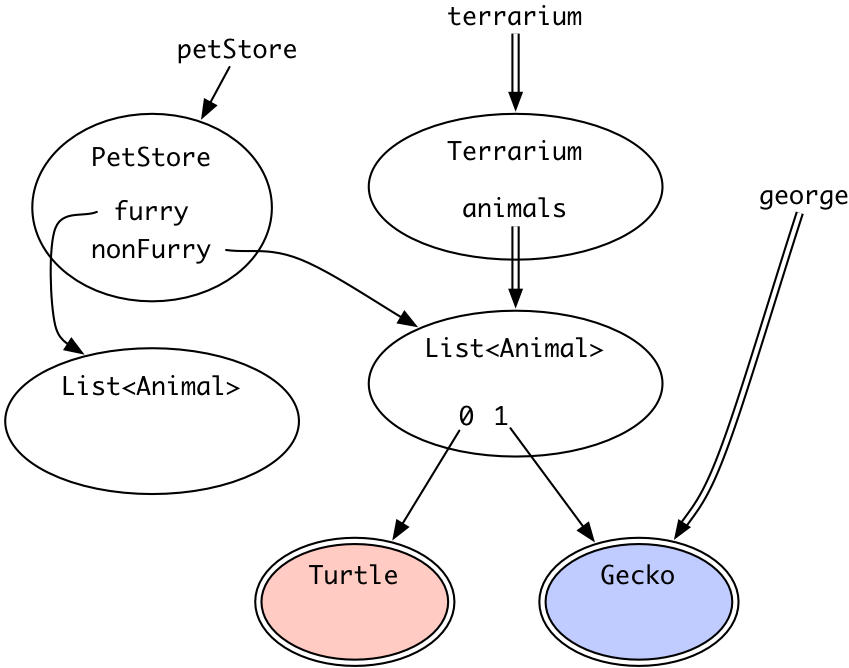Why Are Strings Immutable in Java? Understanding the Core Concepts
Why Are Strings Immutable in Java? Understanding the Core Concepts
Blog Article
Unalterable Strings: A Secret Part in Ensuring Data Consistency and Integrity
In the realm of data monitoring, the importance of unalterable strings can not be overemphasized. The principle of unalterable strings transcends mere technicality; it is a linchpin in the complex internet of information administration.
The Principle of Immutable Strings
Immutable strings, a fundamental principle in programs, refer to strings that can not be customized once they are produced. Basically, as soon as a string value is assigned, any procedure that appears to change the string really develops a new string. This immutability makes sure information uniformity and reliability in applications, as it prevents unexpected changes to the initial data.
Advantages in Information Consistency

Information consistency is crucial in various facets of software growth, including database administration, multi-threaded atmospheres, and dispersed systems (Why are strings immutable in Java?). Unalterable strings add significantly to attaining this uniformity by protecting against information corruption due to concurrent access. In circumstances where several procedures or threads connect with the same information concurrently, immutable strings function as a safeguard against race conditions and synchronization problems
In addition, the immutability of strings simplifies debugging and screening processes. With unalterable strings, programmers can trust that once a string is set, it will certainly remain the same, making it simpler to map the source of mistakes and ensuring that test cases produce constant outcomes. This reliability in data managing ultimately results in more robust and secure applications.

Executing Immutable Strings
Making certain the immutability of strings calls for a thoughtful method to their application in software program growth. As soon as a string object is developed, one crucial approach is to create string classes in a means that prevents alterations. By making strings unalterable, developers can improve information uniformity and dependability in their applications.
To apply unalterable strings successfully, developers ought to prefer producing new string things instead than customizing existing ones. This practice makes certain that when a string is appointed a worth, it can not be altered. Additionally, any kind of procedure that appears to change the string needs to develop a brand-new string with the wanted adjustments as opposed to altering the initial.
Furthermore, making use of immutable strings can simplify concurrency monitoring in multi-threaded settings. Considering that immutable strings can not be transformed after creation, they can be safely shared amongst several threads without the threat of information corruption.
Role in Integrity Assurance
In software program advancement, the utilization of immutable strings plays an essential role you can try here in making certain the dependability of information operations. Unalterable strings, as soon as produced, can not be changed, making certain that the data they stand for remains regular throughout the application's implementation. This immutability building provides a level of assurance that the data being refined will not be accidentally altered, leading to unanticipated results or errors in the system.
By incorporating unalterable strings right into software style, developers can improve the reliability of their applications by lessening the dangers related to mutable information - Why are strings immutable in Java?. Unalterable strings aid in preventing information corruption or unexpected alterations, which can be particularly crucial when dealing with sensitive info or when information integrity is critical
Moreover, the use of unalterable strings simplifies concurrent handling, as several this article threads can safely access and share string data without the threat of one thread altering the content while one more reads it. This aspect adds significantly to the general integrity of the software system, making certain foreseeable and regular behavior in information handling operations.
Applications and System Combination
The smooth combination of immutable strings into numerous applications and systems is pivotal for making certain robust data uniformity and dependability throughout varied technical environments - Why are strings immutable in Java?. Unalterable strings play a crucial duty in enhancing the integrity of information exchanges and communications within complicated software application communities. By integrating unalterable strings into applications, designers can mitigate the dangers related to information tampering, unapproved modifications, and unintended changes, consequently fortifying the overall security stance of the system
Unalterable strings can improve interoperability in between inconsonant systems by providing a standard layout for information representation, enabling more reliable information handling and exchange methods throughout interconnected systems. By taking on immutable strings in applications and system combination procedures, organizations can strengthen their information framework and support the reliability and consistency check that of their info properties.
Verdict
To conclude, immutable strings play a vital duty in preserving data consistency and reliability in various applications and system integrations. By ensuring that strings can not be changed once produced, the honesty of data is maintained, lowering the danger of inconsistencies and errors. Applying immutable strings can significantly improve the integrity of systems, inevitably resulting in more trustworthy and accurate data processing.

Report this page